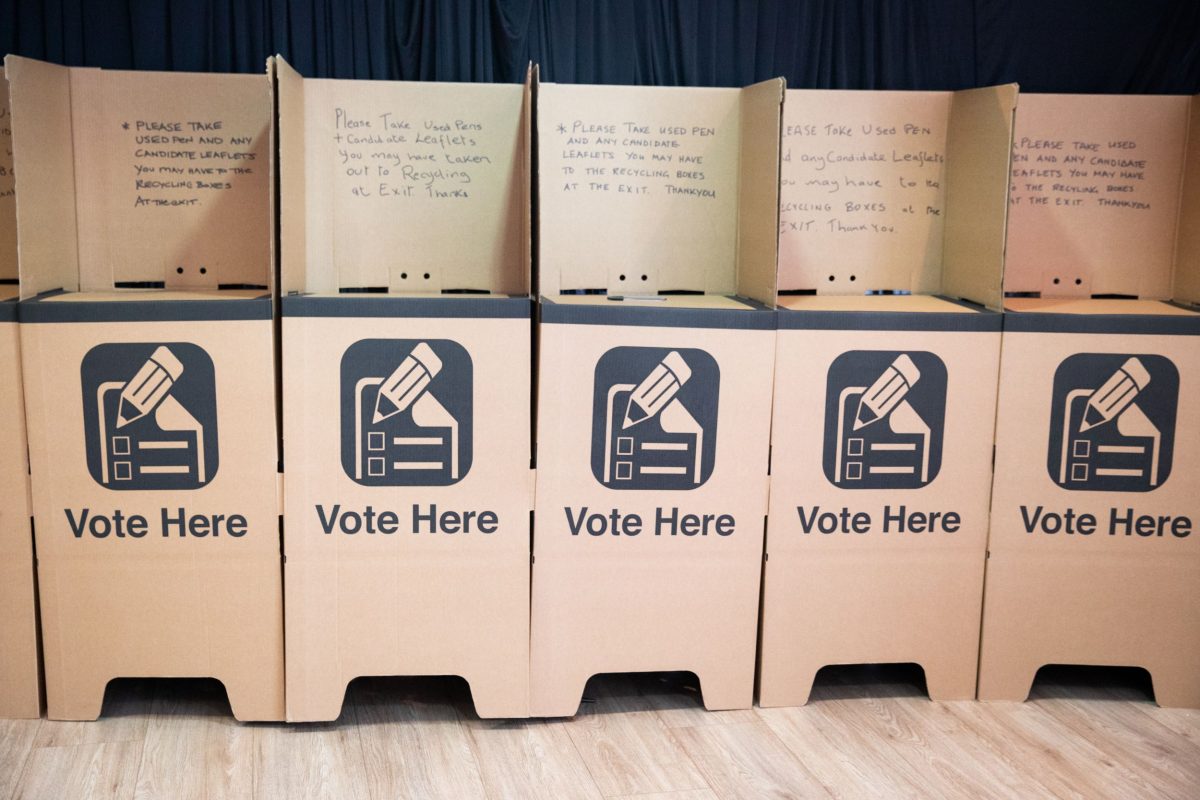
While some young people are struggling to understand our political process, others are demanding the voting age be lowered to 16. Photo: NSW Electoral Commission.
The first time No 1 favourite son was eligible to vote, I sat him down for a serious conversation about politics, democracy and how stuff works.
Bear in mind this was a kid who grew up with a journalist for a mother, who heard the ABC News theme from the time he was conceived and who was surrounded by newspapers and the media all his life.
So you can understand how underwhelmed I felt when, during this serious life discussion, he announced he was intending to throw away (my opinion, not his) his vote on the Pirate Party.
“Why,” I asked through gritted teeth. “They just sound like fun,” was the uninspiring reply.
(FYI, despite its name, the Pirate Party has some pretty serious ideals. It merged with the Science Party, Secular Party, Vote Planet and Climate Change Justice Party to create FUSION, standing for action on the climate emergency and a federal anti-corruption commission.)
He assured me after voting that he hadn’t thrown his vote away, but I’m still not convinced he wasn’t just humouring his dear old mum.
I hate to say it, but if he was still attending school today, he could well be one of those growing number of students who are failing their civics studies.
The 2024 National Assessment Program (NAP) – Civics and Citizenship report shows that nationally, results for civics and citizenship have fallen since the last assessment in 2019 and to the lowest levels since the assessment began in 2004.
The report makes it clear that Year 6 and Year 10 students’ knowledge and understanding of Australia’s democracy, our political system and civic processes is bad and getting worse.
Alarmingly, just 28 per cent of Year 10 students met the proficient standard in 2024 compared to 38 per cent in 2019. Most of those students are only a couple of years away from turning 18 and becoming eligible to vote.
Yet while these figures appear to indicate a lack of knowledge (and interest?) among young people, at the other end of the spectrum there is a growing call to lower the voting age to 16.
A group called Make It 16 says lowering the voting age would provide an opportunity to educate more Australians on the electoral process.
“It provides an incentive for the education system to prioritise strong and meaningful civic education. Studies have shown that giving 16- to 17-year-olds the vote also increases their engagement with elections into adulthood when compared with those who started voting at 18,” the group says.
“By lowering the voting age to 16, we will provide an opportunity to better educate and enfranchise future generations in our democracy.
“By 16 we can work full-time, pay income tax, serve in the army, drive a car, get married and be charged with criminal offences. We have the right and the capacity to be heard, to shape policies that affect our lives, and to be an integral part of our democracy.”
I have no doubt there are knowledgeable, passionate people under 18 who want their voices to be heard by governments so policies and decisions are truly reflective of their needs and interests.
But I’m not convinced that they are the majority.
I’m also not convinced by their argument that it would “provide an incentive for the education system to prioritise strong and meaningful civic education”.
While it’s clear from the NAP results that the current syllabus is not delivering when it comes to civics education, it requires more than just the education system to come up with the goods. And unfortunately, NSW students seem to be getting the raw end of the deal.
Ten years ago a national civics and citizenship curriculum was developed by the Australian Curriculum, Assessment and Reporting Authority, but it’s up to the individual states to decide on how civics and citizenship is taught.
According to the independent think tank Rule of Law Education Centre, all state and territory education ministers have endorsed the Australian curriculum and content has been wholly or significantly adopted and incorporated into education requirements for every state and territory in Australia – except NSW.
In an article comparing the civics and citizenship education of NSW with the Australian curriculum, it’s clear NSW is left badly wanting.
“In the Australian curriculum, the ‘Civics and Citizenship’ strand specifically considers government and democracy, law and citizens, and citizenship, diversity and identity,” Rule of Law says.
“In contrast, there is no mandatory, comprehensive, discrete or explicit aspects of civics and citizenship education in the NSW curriculum.
“In NSW, civics and citizenship education concepts are represented throughout different mandatory (history and geography) and elective (commerce) subject areas and may or may not be covered dependent upon school/teacher engagement with the syllabus.
“Consequently, in NSW, it is possible for students to experience no, or very limited, exposure to civics and citizenship ideas in a historical or contemporary Australian context throughout their entire NSW schooling.”
It’s ironic that the review of NSW’s curriculum – which apparently contains an “enhanced focus” on civics as part of the draft ‘Human Society and its Environment’ syllabus – will eventually land on the Education Minister’s desk for approval.
So in theory our skilled and knowledgeable educators can bust a gut to prepare a comprehensive Civics and Citizenship syllabus, but it’s up to a politician to sign off on it – or not.
If we seriously want to lift the standards of civics knowledge then the same syllabus should be taught across the country, creating a level playing field for all young people regardless of where they live.
After all, isn’t equality a basic right in a democracy?
If you want to try the civics and citizenship test for yourself, click here.
Original Article published by Jen White on Region Illawarra.







